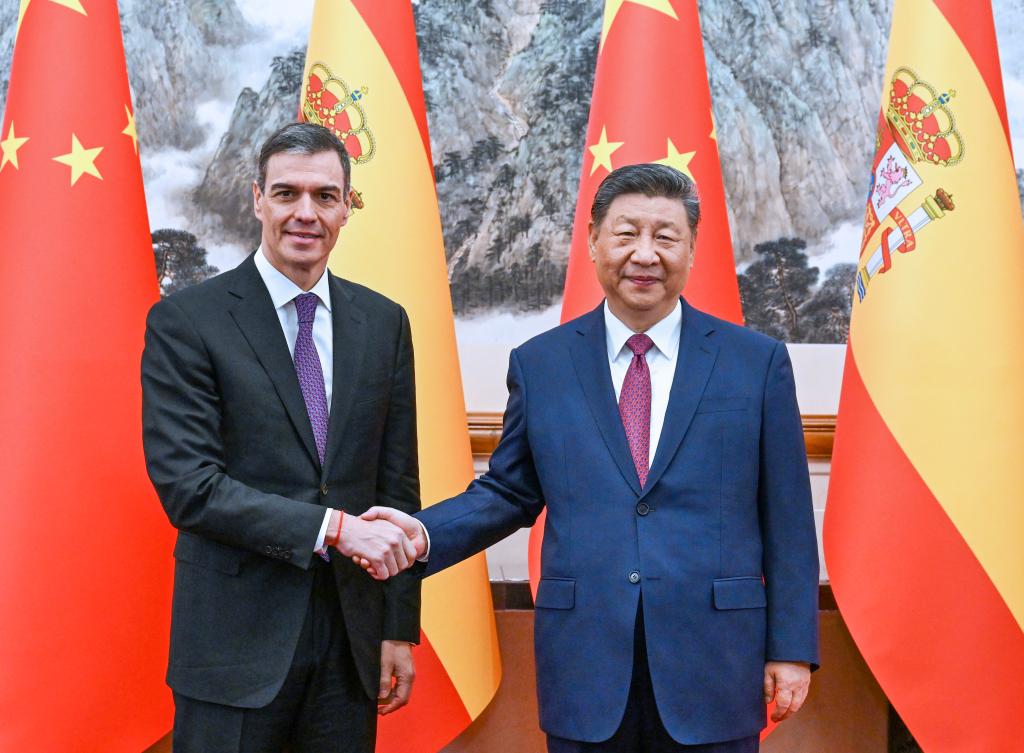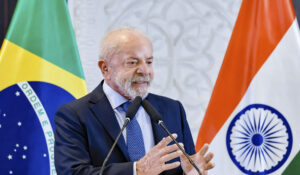
Published 11/04/2025 10:11 | Edited 11/04/2025 17:28
China announced, on Friday (11), the increase in additional tariffs on products imported from the United States to up to 125%, in direct response to the Trump government’s decision to raise so-called “reciprocal tariffs” at the same level. The measure was confirmed by the Commission of Customs Tariffs of the State Council and began to be in force from this Saturday (12).
According to the agency, US excessive rates “severely violate international economic and commercial rules” and represent a unilateral act of “intimidation and coercion.”
By justifying the decision, the commission stated that at the current level of tariffs, “it is already impossible for the Chinese market to accept imports from the US.” The official note also classified Washington’s tariff policy as “economic meaningless” and warned that new elevations would only be “a joke in world economic history.”
Beijing also reiterated that, in the face of deeper attacks on his interests, he will adopt “firm measures and fight to the end.”
Tariffs are not the only response instrument adopted by the Chinese government. The list of US companies included in the so-called “List of Unfaithful Entities” has been expanded, making it difficult to operate in the Chinese market. At the same time, the country mobilized instruments of support to the domestic market, such as repurchase shares by state companies and coordinated public banks to contain financial volatility.
XI Jinping intensifies diplomacy and strengthens regional alliances
President XI Jinping has combined commercial retaliation with a coordinated international repositioning movement. At a meeting held on Friday with Spain Prime Minister Pedro Sánchez, Xi said “there are no winners in a tariff war” and directly criticized the United States for its unilateral acts.
“Going against the world will only result in isolation,” he said. The Chinese leader also reaffirmed that China will continue “focused on managing their own matters well,” noting that the country has never developed external favors, “much less fear of unjustified suppressions.”
The meeting with Sánchez reinforces Beijing’s strategy to cultivate alliances with medium powers in the midst of commercial turbulence. Xi has also announced a series of state visits for the coming days: the Chinese president will travel from April 14 to 18 to Vietnam, Malaysia and Cambodia, deepening ties with Southeast Asian strategic neighbors, many of them harshly hit by US tariffs.
Alongside the critical rhetoric of US isolationism, Xi has reinforced a commitment to multilateralism and the defense of international trade rules. In his speech, Sánchez, he stressed that China and the European Union together represent more than one third of Global GDP, and called for union to resist unilateral bullying. Sánchez, in turn, declared support for an open and rules-based commercial order, aligning with European criticism against the US.
Popular nationalism and cultural resistance gain strength on the streets and Chinese networks
While the government intensifies its diplomatic and economic offensive, the Chinese population has also reacted noisy to the tariff war imposed by Washington. Reports of South China Morning Post They show a wave of nationalist demonstrations between traders and consumers. Restaurants, bars, and shops in cities like Wuhan and Shanghai have charged overcrowding of up to 104% of US customers or announced boycott of US products in a symbolic response to Trump’s tariffs.
Videos circulating on social networks show entrepreneurs refusing to send orders to the United States, destroying iPhones and removing US electronics from showcases. A Wuhan barbecue store posted a sign informing: “We’ll charge an additional 104% of American customers. Questions? See the US Embassy.”
Popular commotion has been fueled by historical discourses and symbols. Leader Mao Zedong’s clips during the Korean War circular again, with phrases such as: “No matter how long the war will last. We’ll never give in. Fight until the total victory.” A patriotic song adapted to criticize the US-“Anti-Us Tax Increase”-viralized in Douyin, Chinese version of Tiktok, with verses accusing Washington of “selfishness” and “open hegemony against the world.”
The spokesman for the Ministry of Foreign Affairs, Mao Ning, published the message: “We are Chinese. We do not fear provocations. We do not retreat.” Speech echoes the feeling of national unity and confidence in facing a power that, according to Beijing, tries to prevent China’s growth at any cost.
Amid the commercial storm, China projects strength and stability
Tariff retaliation, high -level diplomatic mobilization and the coordinated reaction of Chinese society do not point to a defensive posture. On the contrary, they reveal a clear repositioning strategy. China has used tariff climbing as an opportunity to reaffirm its role as a defender of the multilateral order, opposing Washington’s isolationism.
Xi’s image alongside European and Asian leaders, while the official discourse evokes the historical strength of the Chinese people before foreign invaders, suggests that Beijing is shaping the crisis as another episode of his long trajectory of sovereign resistance and affirmation. The tariff war, far from weakening China, may be accelerating its movement to occupy the space left by a power that increasingly prefers to play alone.
Source: vermelho.org.br

